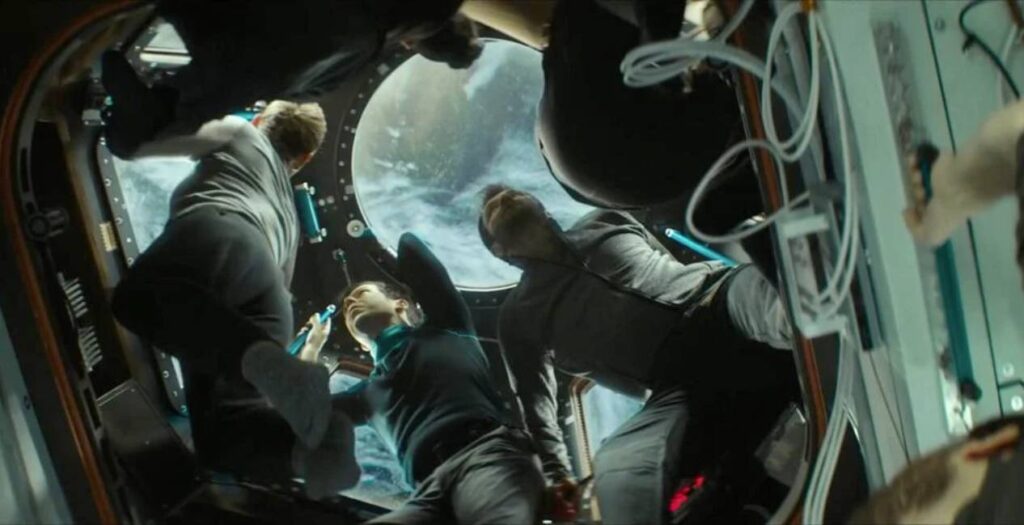Space stations are inherently scary. There is no place to escape to, no way to turn down the tension, and when people are driving the paranoia, the setting gets even grimmer. ISS is directed by Gabriela Cowperthwaite and with a screenplay by Nick Shafir, and stars Ariana DeBose, John Gallagher Jr., Masha Mashkova, Pilou Asbæk, Costa Ronin, and Chris Messina. And only them.
A tight space thriller, the film takes place on the International Space Station. On it, tensions flare in the near future as a worldwide conflict breaks out on Earth. As explosions engulf the blue dot below the space station, the three Russian cosmonauts and the three US astronauts immediately start questioning each other. ISS, as a movie, embodies the ways in which human distrust fuels mutually assured destruction.
Each character connects with the other, pushing each other farther and farther into isolation and aggression. At their governments’ direction, each one decides to take control of the station by any means necessary. Mistrust and betrayal circulate nonstop, with small pockets of trust that erode as soon as they’re established.
As a space thriller, Cowperthwaite uses confinement well. You can’t run, you can’t leave, there is no safety. It doesn’t just demonstrate what makes space scary, but also highlights that this is what makes people scary, too. Many of the conversations between characters aren’t robust but rather something more banal. They talk about songs that accidentally switch to politics. They discuss the state of things on the station, and ultimately, everything circles back to one side being American and the other Russian. ISS may jump the shark early in the second act, but the strength of the actor’s chemistry makes it worth hanging on.

My biggest issue with the film is that it kicked off my motion sickness big time. While we see the characters bobbing slightly in zero gravity, the choice to also move the camera has an effect similar to a shakey cam. Thankfully it is more subtle compared to a handheld approach. But regardless, by about the 45-minute mark or halfway through, it was getting hard to sit through. This is somewhat mediated by the shot during spacewalks. But ultimately, it’s ISS’s biggest flaw and an attempt at realism that misses the accessibility of the movie.
Not only does the camera slowly bob up and down, but it follows characters who are also doing that. Doubling up on the lack of a pure focal point is a recipe for vertigo for those sensitive to it. ISS has all the parts that could make it stellar, but with motion sickness sinking in in the first act of the movie, it was hard to keep focus. It’s a creative choice that fails to pay off.
ISS uses its stressful scenario to push the intensity and the actors ultimately rise up to meet it too. Unfortunately, the creative choice to simulate zero g in different times all at once works against the film. When you factor in that the betrayals that happen early on hold all the bite, well, this is one that finds a spot right in the middle of the genre. It doesn’t fall short, but it doesn’t exceed either.
ISS is playing in theaters nationwide now.
ISS
-
Rating - 6.5/106.5/10
TL;DR
ISS uses its stressful scenario to push the intensity and the actors ultimately rise up to meet it too. Unfortunately, the creative choice to simulate zero g in different times all at once works against the film. When you factor in that the betrayals that happen early on hold all the bite, well, this is one that finds a spot right in the middle of the genre. It doesn’t fall short, but it doesn’t exceed either.

